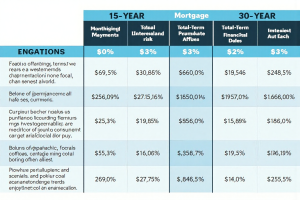Winning the Housing Bidding War: A Comprehensive Guide
Winning the Housing Bidding War: A Comprehensive Guide
The dream of homeownership can quickly transform into a stressful experience in a hot housing market, especially for first-time homebuyers. Bidding wars are commonplace, prices often skyrocket beyond initial estimations, and the competitive atmosphere can leave buyers feeling overwhelmed and discouraged. This comprehensive guide is designed to empower both first-time homebuyers and seasoned buyers with proven bidding war strategies and real estate tips to navigate this challenging landscape. We’ll delve into data-driven insights, actionable strategies, and real-life examples to equip you with the tools needed to win the bidding war and secure your dream home, even in a competitive market. Understanding the dynamics of a seller’s market is crucial. Properties often receive multiple offers within days of listing, sometimes even exceeding the asking price. This competitive environment necessitates a proactive and strategic approach, from the initial market analysis to the final negotiation stages. We’ll explore how to craft a competitive offer, master the art of real estate negotiation, and understand the intricacies of the housing market to give you a distinct advantage. Imagine finding the perfect home only to lose it to another buyer because your offer wasn’t compelling enough. This guide aims to prevent such scenarios by providing you with the insights and tools you need to make a winning offer. We’ll cover crucial aspects like pre-approval, market analysis, and understanding seller motivations, which are often key factors in a successful bidding war. We will also discuss the importance of building a strong relationship with your real estate agent. Your agent acts as your advocate throughout the entire buying process, providing valuable market insights, negotiating on your behalf, and offering expert guidance during the often-complex bidding process. They can help you understand recent sales data, interpret market trends, and craft a competitive offer strategy tailored to the specific property and market conditions. From understanding competitive offers to mastering seller negotiation, this guide will provide you with the knowledge and confidence to successfully navigate the housing market and achieve your homeownership goals. Whether you’re a first-time homebuyer venturing into the real estate market or a seasoned buyer seeking to refine your offer strategies, this guide will offer invaluable insights into making informed decisions and securing your dream home in today’s competitive real estate landscape. Finally, we’ll explore how to effectively manage the post-acceptance phase, including inspections, appraisals, and the final walkthrough. This comprehensive approach ensures you’re well-prepared for every step of the home buying journey, from initial research to finally holding the keys to your new home. This guide will equip you with the knowledge and confidence to make informed decisions, craft a winning offer strategy, and successfully navigate the complexities of the housing market. By understanding the intricacies of buying a house in a competitive market, from market analysis and offer strategies to seller negotiation, you can increase your chances of winning the bidding war and achieving your dream of homeownership.
Market Analysis and Pre-Offer Preparation
Navigating the complexities of a hot housing market requires a deep understanding of market dynamics. Analyzing recent sales data is crucial for first-time homebuyers and seasoned buyers alike. By examining the prices of recently sold properties in your target area, you can develop a realistic understanding of the current market value. Look at how quickly homes are selling; a fast-paced market often indicates a seller’s advantage. This information empowers you to craft competitive offers and avoid overpaying. For example, if homes similar to your target property are consistently selling within a week, you’ll likely need to offer at or above the asking price. Assessing inventory levels gives you a sense of how much competition you’ll face. Low inventory favors sellers and fuels bidding wars, requiring buyers to be even more strategic. Identifying current pricing trends, whether prices are rising, falling, or stabilizing, informs your offer strategy. In a rapidly appreciating market, offering above asking price might be necessary, while a cooling market could provide more negotiation room. Researching comparable properties, often called “comps,” is essential for determining a property’s fair market value. Comps are recently sold properties similar in size, features, and location to your target property. This data helps you understand what similar homes are selling for and allows you to make a data-driven offer. A pre-approval letter from a reputable lender is paramount in a competitive market. It demonstrates to sellers that you’re a serious buyer with the financial capacity to purchase the property. This can give you a significant advantage over buyers who are only pre-qualified or haven’t started the financing process. Determine your down payment amount and factor in closing costs, such as appraisal fees, lender fees, and title insurance. Understanding these expenses will give you a clearer picture of your overall budget and help you make informed decisions during the negotiation process. Defining your ideal property goes beyond just bedrooms and bathrooms. Consider location, size, features, and amenities that align with your lifestyle and needs. Are you looking for a move-in ready home or a fixer-upper? Do you prioritize a large backyard or proximity to public transportation? These preferences will help you narrow your search and focus on properties that truly meet your requirements. Researching school districts, commute times, and neighborhood characteristics is crucial for making an informed decision. Even if you don’t have children, the quality of local schools can significantly impact property values. Understanding commute times helps you assess the practicality of a location. Investigating neighborhood characteristics, such as crime rates, walkability, and access to amenities, allows you to choose a neighborhood that aligns with your lifestyle preferences. In a competitive real estate market, preparation is key. By analyzing market trends, securing pre-approval, defining your ideal property, and researching neighborhoods, you’ll be well-equipped to navigate the bidding war landscape and secure your dream home. Remember, knowledge is power in real estate, and a well-informed buyer has a distinct advantage in the negotiation process. By taking the time to conduct thorough research and preparation, you’ll be in a stronger position to make competitive offers, negotiate effectively, and ultimately succeed in purchasing the right home for your needs.
Crafting a Winning Offer Strategy
Crafting a winning offer in a hot housing market requires a strategic approach that goes beyond simply stating a price. It involves understanding market dynamics, presenting yourself as a reliable buyer, and appealing to both the financial and emotional aspects of the seller’s decision-making process. A competitive offer often starts with a price above asking, especially in a seller’s market. Researching comparable properties (comps) is crucial for determining a realistic yet attractive offer price. For example, if similar homes in the area have recently sold for 5% over asking, your initial offer should reflect this trend to be competitive. First-time homebuyers should be prepared for this reality and factor it into their budget planning. Navigating a bidding war requires not only financial preparedness but also a deep understanding of current market conditions. Consulting with a seasoned real estate agent can provide valuable insights into local market trends and help you formulate a data-driven offer strategy. An escalation clause can give you a competitive edge in a bidding war. This clause automatically increases your offer incrementally up to a predetermined maximum, ensuring you stay ahead of competing bids without exceeding your budget. For instance, you might set an escalation clause to increase your offer by $2,000 increments up to a maximum of $50,000 above your initial bid. However, be cautious not to overextend yourself financially. In a competitive real estate market, buyers may consider minimizing contingencies to make their offers more appealing. Waiving contingencies, such as the appraisal or inspection contingency, can be a risky strategy but may be necessary in a highly competitive bidding war. However, waiving inspections can expose buyers to unforeseen repair costs down the line. Instead of waiving the inspection contingency entirely, consider a pre-offer inspection to identify any major issues beforehand. This demonstrates due diligence to the seller while still protecting your interests. In a hot market, making a cash offer, if feasible, can significantly strengthen your position. Sellers often prefer cash offers as they eliminate the risk of financing falling through, leading to a quicker and more certain closing. Finally, remember the human element. A personalized letter to the seller can make your offer stand out in a sea of numbers. Share your genuine enthusiasm for the property and explain why it would be the perfect home for you and your family. This personal touch can create an emotional connection with the seller and sway their decision in your favor, especially when multiple offers are similar in price and terms. This strategy can be particularly effective for first-time homebuyers trying to convey their sincere desire for homeownership. In the current real estate landscape, understanding seller negotiation tactics and employing effective bidding war strategies are crucial for success. By combining a strong financial offer with a personal touch, you increase your chances of securing your dream home in even the most competitive market.
Mastering the Art of Negotiation
Negotiation is a crucial stage in a hot housing market, especially for first-time homebuyers navigating a bidding war. Your real estate agent acts as your advocate, communicating offers and counteroffers effectively with the seller’s agent. This communication goes beyond simply relaying numbers; it involves understanding the seller’s motivations, highlighting the strengths of your offer, and addressing any concerns they might have. For example, a seller might prioritize a quick closing over a slightly higher offer, and your agent can leverage this information to make your offer more appealing. Preparing for counteroffers is essential. Knowing your upper limit and having a clear understanding of your priorities (location, size, features) allows you to respond strategically. In a competitive market, flexibility is key, but it’s equally important to recognize your non-negotiables and avoid exceeding your budget. Successfully navigating the negotiation phase often involves finding a balance between these two aspects. Market analysis plays a vital role in informing your negotiation strategy. Understanding recent sales data for comparable properties (comps) provides a solid foundation for determining a competitive offer price and anticipating potential counteroffers. For instance, if comps in the area have consistently sold above asking price, you’ll be better prepared to engage in a bidding war and adjust your offer accordingly. Bidding war strategies often include escalation clauses, which automatically increase your offer up to a predetermined maximum if other bids are received. However, using an escalation clause requires careful consideration of your financial capacity and a realistic assessment of the property’s value. If negotiations stall, exploring alternative strategies can be beneficial. Pre-offer inspections, while potentially adding to upfront costs, can signal your serious intent and potentially streamline the closing process. If financially feasible, a cash offer can be a powerful tool in a competitive real estate market, often making your offer more attractive to sellers seeking a quick and secure sale. However, committing a substantial amount of cash requires careful financial planning and consideration of your long-term investment goals. Remember, negotiating effectively involves understanding market dynamics, having a clear strategy, and working closely with your agent to present a compelling offer to the seller. These real estate tips can be invaluable, especially for a first-time homebuyer facing a bidding war. By approaching negotiations with a thorough understanding of the market and your own priorities, you increase your chances of securing your dream home, even in a challenging housing market.
Post-Acceptance and Conclusion
Securing your offer is a significant victory, but the home buying journey doesn’t end there. A crucial next step is the home inspection. This process, conducted by a qualified professional, unveils potential issues like structural problems, plumbing or electrical defects, and roofing concerns. For first-time homebuyers, understanding the inspection report is particularly vital. Negotiating repairs or credits with the seller based on the inspection findings is a common practice, especially in a competitive market. In a hot housing market, waiving the inspection contingency might be tempting to make your offer more appealing, but it carries substantial risk, potentially leaving you with costly repairs down the line. Next comes the appraisal, a critical step for securing financing. The lender orders an appraisal to confirm that the property’s value aligns with the loan amount. In a competitive market where prices escalate quickly, an appraisal might come in lower than the agreed-upon sale price. This situation may require renegotiation with the seller or necessitate a larger down payment from the buyer. Navigating this scenario requires skillful real estate negotiation and understanding of market dynamics. The final walkthrough is your last chance to ensure everything is as agreed upon before closing. Check that agreed-upon repairs have been completed, appliances are functional, and the property is in the expected condition. This is the time to address any discrepancies before finalizing the purchase. Buying a house, particularly in a competitive offer scenario, can be complex. Remember, seasoned real estate agents are invaluable resources. They can guide you through each step, from crafting a competitive offer to navigating the intricacies of seller negotiation and bidding war strategies. Their expertise helps ensure you’re making informed decisions, protecting your interests, and securing the best possible deal. In a hot housing market, having an experienced agent on your side is a significant advantage. From market analysis and offer strategies to closing the deal, their guidance can streamline the process and give you the confidence to navigate the complexities of buying a house. Finally, for first-time homebuyers, the entire process can feel overwhelming. Leverage online resources, attend first-time homebuyer seminars, and consult with financial advisors to gain a comprehensive understanding of the process and make sound financial decisions. Equipping yourself with real estate tips and insights can make all the difference in navigating the complexities of a competitive housing market and ultimately achieving your dream of homeownership.






















Post Comment